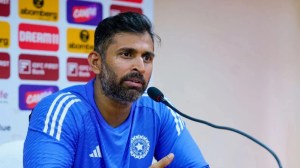Films First, Stars Later
The big takeaway from the just-concluded 38th International Film Festival of India is that we may finally...

The big takeaway from the just-concluded 38th International Film Festival of India is that we may finally have an international film festival on our hands. There, I8217;ve said it. Being complimentary about the IFFI, with its trademark chaos and confusion, doesn8217;t come naturally to any of us regulars. But this time around, in its fourth edition in Goa, the IFFI seems to have found its feet.
Bollywood went missing this time, and it worked to the festival8217;s advantage. Stampedes of camerapersons chasing filmstars for sound-bytes are all very well, but only when they don8217;t take away from the proceedings. Right from the sober opening ceremony 8212; no shirtless Salman, no Bipasha and her 8216;bidi8217;, no tasteless gyrations 8212; the signs were evident that this was going to be Films First, Stars Later event. Star-spotting is serious business in such festivals as Cannes, which Goa is hoping to turn into, but the former is clear about its priorities: it gets the best movies in its line-up; the red carpet is just a massive spin-off.
Shah Rukh Khan was the sole megastar touch at the inaugural. He displayed his dimples, delivered a smart speech, charmed everybody, and left. Allowing everyone to swiftly return to the real business at hand: watching as many movies as they could, feverishly checking the catalogue to see what8217;s next, meeting film people from around the world, or just simply hanging, soaking in the atmosphere, which is like no other 8212; a mix of film, food and festive spirits.
That last assumes significance in Goa. Rows of booths at the INOX complex, the festival8217;s main venue, are happy to sell you a glass of red wine, or a pint of beer. If you want, you can get can gently sloshed by the end of the day. Legally. And productively.
Equally importantly, there were far few organisational snafus. A ticketing system borrowed from film festivals abroad, which required all delegates and mediapersons to block their seats in advance, was experimented with. And on the whole, despite a few glitches, it worked. The serpentine queues and being turned away after long, fractious hours of standing in line, are a thing of the past.
Some of the films were outstanding. The opening film, 4 Months, 3 Weeks and 2 Days, a somber, stunning document on the difficulties of getting an abortion in Communist Romania, was a coup. So was the South African Tsotsi, about a feral hood who turns away from casual violence after a baby enters his life. From China came The Postmodern Life Of My Aunt, a marvellous look at what it is like to be a 60-something woman in present-day Shanghai. Thailand8217;s Me Myself was a darkly funny love story. And from Pakistan, the long but very brave Khuda Ke Liye, about the contemporary, frightening face of fundamentalism and prejudice, was a highlight.
The 8216;Panorama8217; section, which screens the best of Indian cinema, was held to be better this year than in the past few. And by far the best of the lot was Adoor Gopalakrishan8217;s superb Naalu Pennugal Four Women. As well as debut director Samir Chanda8217;s disturbing but moving tale of a father and daughter, Ek Nadir Galpo The Tale Of A River.
Part of the charm is also to schmooze with the high rollers, for which the Film Bazaar is a good place. Shekhar Kapur, who had given Goa a miss for the past two years because he was shooting the sequel to Elizabeth, showed up to say how Hollywood has forgotten the art of making movies, that Bollywood needs to go global, and that he was back to, finally, make his long-pending Paani. He8217;s said it all before, but Kapur is always engaging, and sometimes insightful. Other usual suspects, such as Ketan Mehta and Sudhir Mishra were there too, with repeat manifestos 8212; the importance of making independent movies, away from the evil studios. But hey, it8217;s fine. They are here to do the thing. And so are we.
The IFFI came to Goa seeking a permanent home with twin purposes. All those previous years when it shuttled every alternate year between New Delhi and various major state capitals, it had been held in January. With the move, the IFFI would stop being labelled derisively as a travelling circus. And that sunny Goa in end-November would be way better than freezing Delhi in January.
The hope was also that it would be the only truly international festival of films in India. There are now flourishing fests in Mumbai, Thiruvananthpuram, Kolkata, Pune, and New Delhi, which hosts the excellent Osian film festival.
The last three years have been a mess. This year the fest has moved to the next level. Cannes is still a distant dream, but IFFI 8217;07 was a firm step in that direction.
shubhra.guptagmail.com
- 01
- 02
- 03
- 04
- 05































